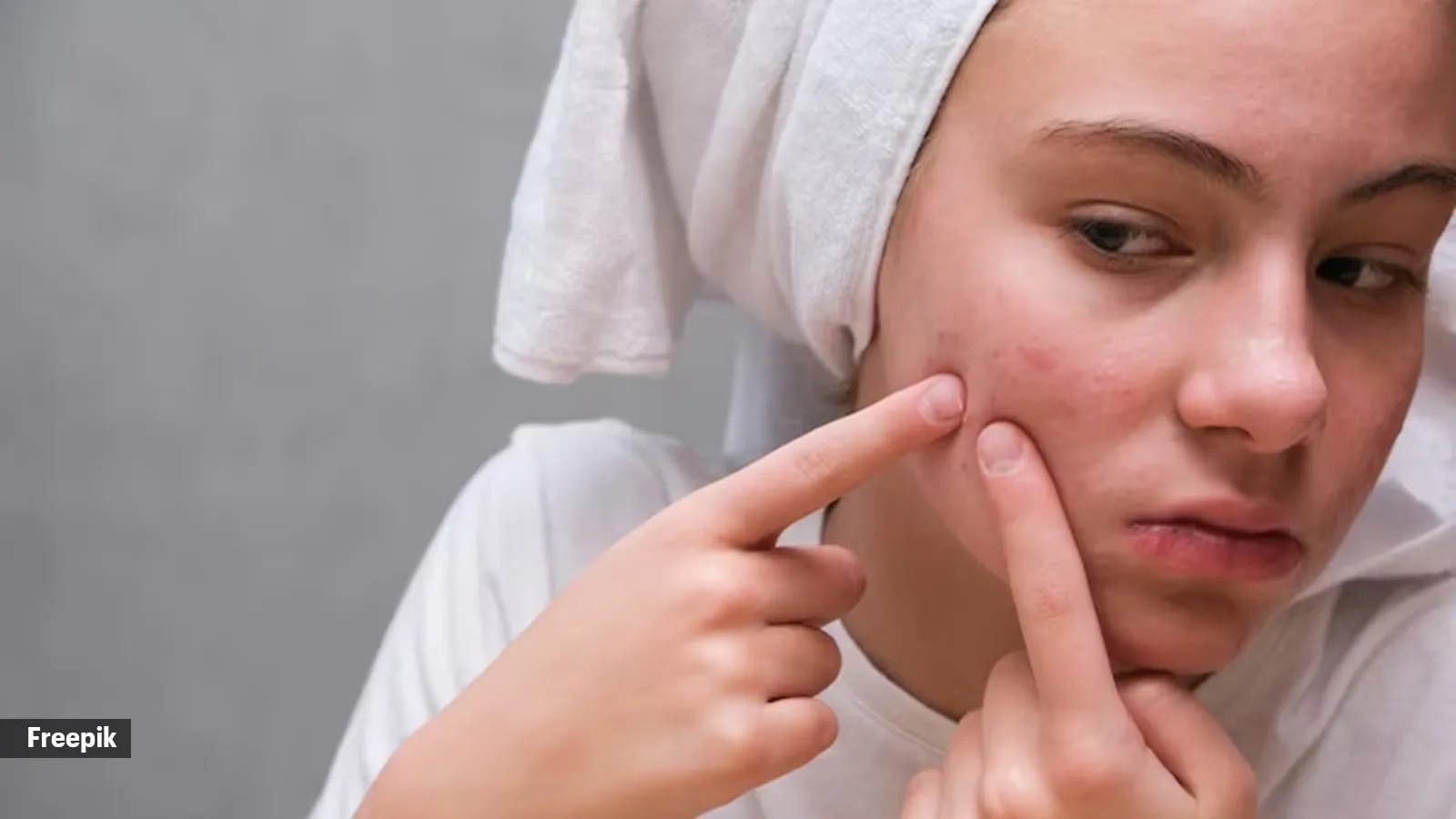Acne can be frustrating to manage, and the temptation to pop a pimple often feels irresistible. While it may seem like a quick fix, popping pimples can do more harm than good, especially in certain areas of the face or for specific types of acne.
Dr Sheena Kapoor, Consultant Dermatologist at Kokilaben Dhirubhai Ambani Hospital in Indore, explains why popping pimples is harmful, the complications that can arise, and what can be done to minimise the damage or avoid it altogether.
Why Is Popping Pimples Worse for Certain Spots?
Not all pimples are created equal, and some spots are more prone to complications when popped. “Pimples located in the ‘danger triangle’ of the face—the area spanning from the corners of the mouth to the bridge of the nose—are particularly risky,” says Dr Kapoor. This area is rich in blood vessels that connect to the brain. Any infection caused by popping pimples in this region can, in rare cases, lead to severe complications such as cavernous sinus thrombosis, a potentially life-threatening condition.
Cavernous sinus thrombosis (CST) is a rare but serious medical condition where a blood clot forms in the cavernous sinus, a large vein located at the base of the brain. This vein is responsible for draining blood from the face and brain. When a clot blocks this vein, it can lead to severe complications due to impaired blood flow and the potential for infection to spread to the brain and surrounding tissues.
Additionally, deeper lesions like cysts or nodules are more likely to leave scars when squeezed. Dr Kapoor advises against attempting to extract such acne at home, as improper handling can push bacteria deeper into the skin and exacerbate inflammation.

 Are you also experiencing breakouts? (Source: Freepik)
Are you also experiencing breakouts? (Source: Freepik)
What Should You Do Instead of Popping Pimples?
- Resist the Urge:
Avoid touching or squeezing acne lesions. - Follow Dermatologist-Approved Treatments:
Consult a professional for guidance and medication tailored to your skin type. - Adopt a Gentle Skincare Routine:
Use products with acne-fighting ingredients like salicylic acid or benzoyl peroxide under the supervision of a dermatologist. - Seek Professional Extractions:
For blackheads or whiteheads, opt for professional extractions in a clinical setting to minimise risks.
While popping pimples might seem like a shortcut to clearer skin, the risks far outweigh any temporary benefits. Dr Kapoor advises individuals with acne-prone skin to resist the urge to pop and instead seek professional treatments. With modern dermatological advancements, the damage caused by popping pimples can often be minimised, but prevention remains the best approach.
DISCLAIMER: This article is based on information from the public domain and/or the experts we spoke to. Always consult your health practitioner before starting any routine.


